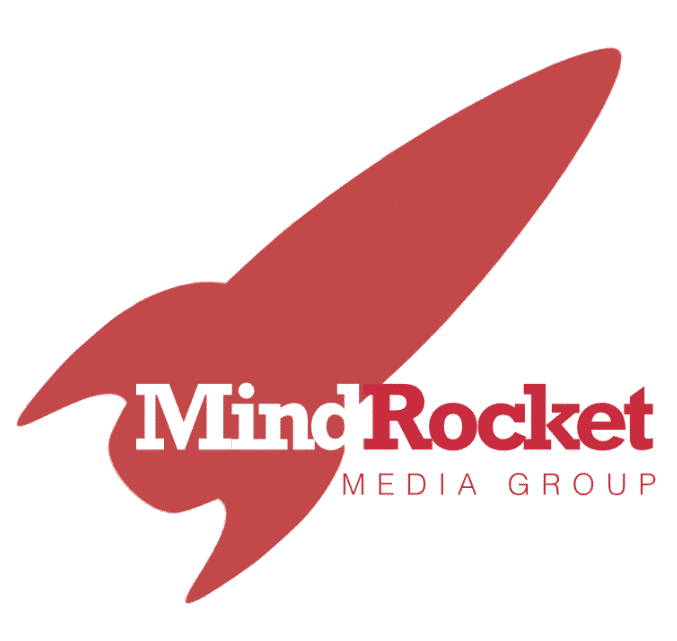Alternative methods of public school funding and district-wide collaboration with local businesses and corporate entities have become hot topics in the education space. I had the opportunity to speak with Dr. Dana Monogue Assistant Superintendent at Elmbrook School District, near Milwaukee, about funding and partnership efforts at the AASA conference in New Orleans. She shared some interesting creative solutions to problems facing the Elmbrook School District in Wisconsin.
One of the focal points involved integrating high school juniors and seniors into real-world situations with local business and industry partners to give them hands-on experience with the challenges of being in the workforce. The business partners are engaged, in part, because it is becoming more difficult every year to keep top talent in their area of the country.
By partnering and getting to know local businesses, students are more likely to become long-time contributors to the area economy. According to Monogue, the partnership relationship builds coursework and internship opportunities that lead to jobs, allowing students to “come back and have a wonderful career and raise a family in our neck of the woods.”
In an area of the country that has a talent pool shortage in highly skilled professions like information technology, medicine, healthcare and the bioscience industry, getting students engaged and excited about local opportunities is an insurance policy for a thriving future in the region.
Interview
Host: Dana, I’ve had some really interesting conversations with superintendents around some very hot topics, the ones that can be challenging, I’m sure, just in the day-to-day work of district leadership.
One is around funding and how we can be more creative to understand how to incorporate the private sector or corporate America in new and innovative ways, not just from sort of a human capital in providing some resources, but also funding, ways that you and I when we were growing up in school, they didn’t think about or there was really a division.
How do you look at that in your district and are you also seeing that as a trend that we’re more open to those conversations?
Dr. Dana Monogue: I would say we’re definitely seeing it as a trend and there’s a terrific openness in our region of the country. We have been engaging a variety of different partners in our work to find creative solutions to our funding issues not just our partners in the legislature at the state and national level but also in the business and industry community
In our system over the past couple of years, we’ve been working to build and create very different kinds of teaching and learning experiences for, in particular, high school juniors and seniors, where not only will they be learning course content, but they will be applying that knowledge to projects and real world problems that are given to us by business and industry partners.
For the work our high school students will be engaging in, our business and industry partners are either paying for those services and providing us training and resources, or they’re giving us money in kind, for a couple of really important reasons. We all share a couple of big concerns. We want talent to remain in our area of the country.
We want to be able to illuminate a path for our students where they can see what business and industry options there are for them in Wisconsin, so that even if they go away to college, they know ─ because of the relationships that they will be building doing that course work with us and doing internship opportunities that are given to us by these partners ─ that they can come back and have a wonderful career and raise a family in our neck of the woods.

Through those discussions, we have been really pleasantly surprised at the shared concerns and also the willingness to lock arms with us and think very differently about funding.
That’s maybe one example.
Host: What’s interesting with what you’ve said there is the forethought. These students ─ if we do our jobs right and if we’re mindful of our greater community, we can introduce them to opportunities.
Maybe that specific position may change because we continue to evolve but, at least our relationships and our growing awareness of what could be if we stayed in our community ─ and that’s not something we hear all the time ─ I think is quite important.
Dr. Dana Monogue: Right, absolutely. In our region, there are a couple of industries that are really hurting for talent ─ information technology, medicine, and healthcare. The bioscience industry is exploding in our area. Global business, just entrepreneurship, in the state of Wisconsin ranks fifty out of fifty in a recent Kauffman education survey of entrepreneurialism in our state.
There’s a real need and a real urgency to think differently, so we’re really excited about the potential.
Host: What do you think of the ranking 50th out of 50, just from your perspective? You’re there day to day with students in your community. What is it about it that is not ─
Dr. Dana Monogue: I think there’s an opportunity for us to be much more purposeful at K-12 certainly, but also at the collegiate level and, again, through these partnerships. There are a lot of really well-intentioned, great people doing wonderful things but there isn’t connectivity; there isn’t coherence across all those entities.
So we’re really trying to build that with the programs that we’re putting into place.
Host: What’s interesting, Dana, is we’re in that world where students are not seen as consumers; they’re really the creators, and the ownership of their learning which really plays nicely with entrepreneurship in the world that they’re going to be walking into ─ how, as a district, do you look at it when you think about ownership of learning from a student’s perspective, documenting that, and then communicating that out whether ─ we’ve heard people talk about a change in even reports cards to engaging the parents and the families in that communication loop.
Where are we at in that and how do you see the move forward?
Dr. Dana Monogue: In our system, we are really taking the opportunity to personalize learning very seriously starting at kindergarten or pre-kindergarten. As we look at the type of teaching and learning experiences we’re putting into place, we want to make sure those are built with a differentiated approach in mind.
Our students start goal setting very early. I’ve used this in a first-grade classroom where our teacher was facilitating a small group of first graders who are taking ownership of their learning, writing, reading, and math goals.

And so, that type of thinking can really happen very early. We also tried to infuse voice-and-choice questions as much as possible, and that grows as a student grows through our system.
So putting the student at the center is really what we’re trying to do. We’ve made great gains from kindergarten through eighth grade. In high school, there are so many traditional structures and processes that we, every year, try to chip away at.
But, again, this pressure that we’re getting ─ I think it’s positive pressure ─ from business and industry to really think and do things differently, we’re trying to harness that and then, really inform and influence practice in K-12.
Host: Do you think some of that has to do with engaging the family or the parents in that as well so that if the students are taking ownership and we’re documenting in a more thoughtful manner, and then we’re passing that along, I would imagine that that can help to break down some of those barriers that we might be seeing at the high school level or traditional models.
Dr. Dana Monogue: A really easy and simple example and something that’s been very highly leveraged in our system are student-led conferences. Taking the old paradigm of the parent-teacher experience and putting students as the driver of those experiences ─ those types of paradigm shifts can really send invaluable messages not only to the family but also to the students about who really needs to be at the center of those decisions; and that is our children.
Host: You talked earlier about K-8. What was interesting about that is we see ─ if we bring EdTech into the conversation ─ I think when EdTech sort of came on the scene very robustly, it was very exciting and there were lots of amazing things going on.
There were a lot of buyer’s remorse saying, “Well, if we buy something district-wide, it may work in the middle school or the high school level but that does not mean that it’s also applicable to our younger learners.” And, also, it didn’t seem like we were really on board with how to engage the younger learner with technology embedded in their learning.
How do you think decisions are made when we’re talking about purchasing now thinking about, we’ve got technology potentially that is a great starter at the K-8 that leads them into middle and high school? Are we doing that?

Dr. Dana Monogue: Our district’s experience with EdTech is a little bit different. We are now on a one-to-one system, and that’s taken us a few years to build into. Primarily, we leverage iPad technology in K-2 and Chromebook technology in 3-12. And then, we value the Google suite of applications.
We started at the elementary and then we built into the secondary. Now, our students expect those tools in our classroom. I would say that it’s been harder for some of our secondary or high school teachers to really embrace technology in their classrooms. We’re getting better every single year. It just has been more intuitive for elementary educators.
But because there are so many free applications out there and there’s so much for our teachers to consume, we try to be as open as we can about the other software programs and things that we use. We have not had that buyer’s remorse. In fact, our teachers are clamoring for more. And so, we now have teams of middle school or high school educators asking for iPads because the Chromebooks just don’t do everything they would like to do in their teaching.
We’re seeing good success with it. We really don’t want to see an over reliance on it. We want it to be a tool, certainly.
Host: A healthy balance ─
Dr. Dana Monogue: A healthy balance, right, which is an ongoing effort. But it’s going well so far.
Host: Let’s close with this, Dana. How has your role changed just to your own experience in your position? And what surprised you along the way? I’m just finding that the role has just very quickly changed into something that is taking on new personalities and skill sets and it really requires a different set of skills to be able to successfully navigate a community in an ever-changing environment.
Dr. Dana Monogue: The nuts and bolts or the science of my position, I would say, hasn’t changed. I’m still responsible for the K-12 instructional program. I’m still responsible for supervising and evaluating our administrative team. I’m still responsible for data and assessment and continuous improvement.
I think what has changed is how much time we need to spend in providing hope and providing optimism; being a positive face, a positive voice; being the head cheerleader; and being the head encourager, not just expecting differentiation of our teachers for our students but also differentiating my leadership for those that I serve.
We have some unbelievable teachers that I have the privilege of working alongside every single day, who take any idea and any initiative and do more with it than I could have ever imagined. And so, it is keeping those people excited, engaged, proud, and hopeful about being an educator in today’s very politically charged dichotomous times.
So I would say that has been what’s changed.
About Dr. Dana Monogue
Dr. Dana Monogue has been the Assistant Superintendent of Teaching and Learning for the Elmbrook Schools since 2012. She has worked tirelessly to promote student-centered learning, inclusive practices, clear learning targets and aligned curriculum, and high quality teacher and administrator leadership. She leads a talented teaching and learning team that drives change through deployment of best practices, cycles of continuous improvement, and a Teaching and Learning Playbook. Dana’s passion lies in establishing teacher leadership models that encourage shared leadership and ownership of transformative initiatives in public education.
Dr. Monogue earned her doctorate degree from the University of Wisconsin-Milwaukee in 2014. Her dissertation was on Changing Student Demographics and Suburban School Leadership. Dana received her Bachelor’s Degree in Communicative Disorders from Purdue University. She completed her first Master’s in Educational Administration in 1994 from the University of Wisconsin-Madison, and her second Master’s in Educational Leadership in 2006 from UW-Milwaukee. In addition to her leadership in Elmbrook, Dana influences future leaders in education as an Adjunct Faculty Member in Carroll University’s Graduate Program for Educational Leadership, where she has taught since 2008.
Prior to Elmbrook, Dana served as a Middle School Principal and Deputy Superintendent for Curriculum and Instruction for the School District of Waukesha. Over her administrative career, she has led a variety of projects including the redesign of a middle school model and the design and implementation of a STEM school.
Follow Dr. Dana Monogue on Twitter

